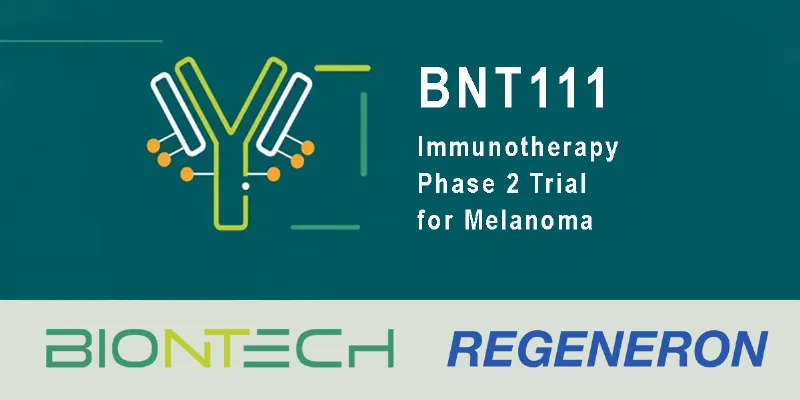BioNTech's mRNA Therapy BNT111 Shows Promise for Advanced Melanoma

30 July 2024
BioNTech's Phase 2 trial of BNT111, an mRNA-based immunotherapy for advanced melanoma, showed promising results in improving response rates when combined with the PD-1 inhibitor cemiplimab. This breakthrough targets patients unresponsive to standard therapies, leveraging novel mRNA and lipoplex technologies.
BioNTech SE has reported promising outcomes from the ongoing Phase 2 clinical trial of its mRNA-based immunotherapy, BNT111, for patients with unresectable stage III or IV melanoma who did not respond to previous therapies. The randomized trial evaluates the clinical activity and safety of the investigational mRNA cancer immunotherapy BNT111 in combination with Libtayo® (cemiplimab), an anti-PD-1 monoclonal antibody, being developed by Regeneron, and assesses the two agents separately. The trial met its primary endpoints and will continue to explore additional efficacy measures.
A Step Forward in Personalized Medicine
Prof. Özlem Türeci, Chief Medical Officer at BioNTech, emphasized that these results underscore the potential of mRNA technology in revolutionizing cancer treatment, particularly for melanoma patients who have exhausted other options.
“These data are a proof of concept for us in three dimensions: First, for our decade-long improved mRNA cancer vaccine technology that uses uridine mRNA chemistry, a non-coding backbone that is engineered for optimal translational performance and our proprietary lipoplex formulation for delivery. Second, for our computational approaches for selecting suitable tumor antigens for our cancer indication-specific FixVac platform candidates. Third, for our strategy to combine synergistic modalities, in this case BNT111 with an established immune checkpoint treatment” said Prof. Türeci.

Trial Achievements
The trial, focused on individuals with unresectable stage III or IV melanoma, has not only met its primary endpoint but has shown a statistically significant improvement in overall response rates (ORR) when BNT111 is used in combination with the PD-1 checkpoint inhibitor cemiplimab, compared to historical controls. This marks a breakthrough for patients with melanoma that has relapsed after or is refractory to anti-PD-(L)1 therapies.
Study Design and Findings
Conducted internationally across around 60 sites in 7 countries, this open-label, randomized Phase 2 trial (NCT04526899) assessed the efficacy and safety of the combination of BNT111 with cemiplimab, as well as their individual contributions. Patients were randomized to receive either the combination therapy, BNT111 alone, or cemiplimab alone. The study noted that the safety profile of BNT111 when combined with cemiplimab aligns with previous studies involving anti-PD-(L)1 treatments.
Innovative Technology
BNT111, which stems from BioNTech’s FixVac platform, is composed of a fixed combination of four mRNA-encoded, tumor-associated antigens. These are designed to elicit both an innate and specific immune response against cancer cells. The formulation used in BNT111 is based on proprietary uridine mRNA and lipoplex technology, representing years of refined mRNA science.
Regulatory Milestones and Future Steps
In 2021, this particular combination therapy received Fast Track designation from the U.S. Food and Drug Administration (FDA) for the treatment of anti-PD-1-refractory/relapsed, unresectable Stage III or IV melanoma, alongside an Orphan Drug designation for the treatment of melanoma stages IIB through IV. BioNTech, along with its development partner Regeneron, plans to present detailed results at an upcoming medical conference and aims for publication in a peer-reviewed scientific journal. The trial will continue to evaluate secondary endpoints, which include duration of response and overall survival.
BioNTech’s Oncology mRNA Platforms
BioNTech’s commitment to advancing cancer treatment is supported by its portfolio of oncology mRNA platforms, which include the FixVac and iNeST (Individualized Neoantigen Specific Immunotherapy) platforms. These are designed to cater to specific oncological challenges by targeting shared tumor-associated antigens or crafting patient-specific therapies.











Comments
No Comments Yet!